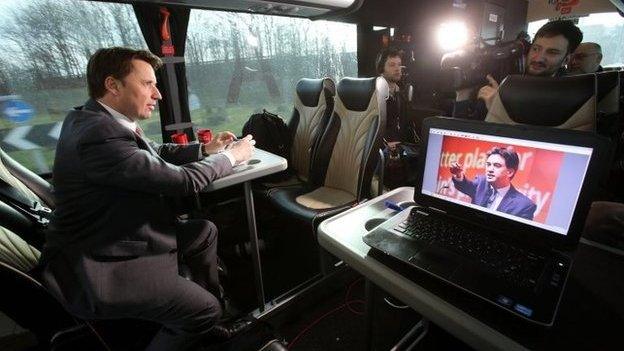Election TV debate: View from the party camps
- Published
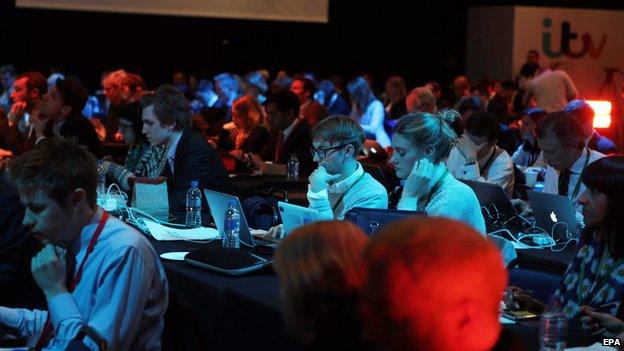
The press have commentated - but what are the parties' camps saying?
As commentators and pollsters pick over Thursday's TV debate, what are the party camps themselves saying?
BBC Labour Campaign Correspondent Iain Watson
Americans often say elections are decided by the "big mo" - the party or candidate that has momentum.
After last night's debate, Ed Miliband appears to have "little mo" and his strategists are content, if not ecstatic, with that.
That's because, they say, so much of the Conservative campaign focuses on the issue of leadership.
On day one, David Cameron denounced his Labour opponent on the steps of Downing Street, so to tie with the current PM in two polls on the question of who won the debates - and to be ahead in another - is seen as progress.
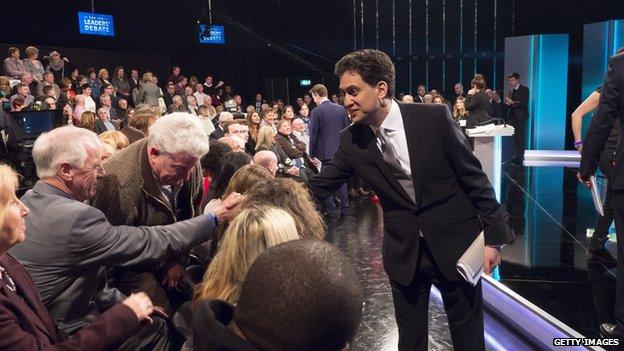
Labour think their leader emerged unscathed
On the question of who'd make the better prime minister, Mr Miliband still trails - but Labour argue the gap is narrower now than it was before the campaign got under way.
Privately, they would concede that the seven-way format worked to an extent for Mr Cameron - and publicly they say the prime minister "hid behind" the leaders of the smaller parties to blunt Mr Miliband's blows.
They also recognise that Labour hasn't been on the front foot enough in the first full week of the campaign.
Now, with their leader pretty much unscathed after the only debate with Mr Cameron at this election, they say they have "policies in the locker" which will be released next week in an attempt to set, rather than react to, the agenda.

BBC Conservative Campaign Correspondent Carole Walker
David Cameron may not have won the debate, but it is the poll giving him a commanding lead when it comes to who is most capable of leading the country which has buoyed the Tory camp.
As Mr Cameron heads back out on the campaign trail today, he will undoubtedly be relieved to have the debate behind him.
Chancellor George Osborne, who led a clutch of cabinet ministers into the "spin room" last night, said the key moment was when the prime minister accused each of the leaders lined up against him of planning more debt and more taxes.
Tory strategists believe Mr Cameron succeeded in sticking to his core argument, that he is the leader with a long-term plan of turning the economy around.
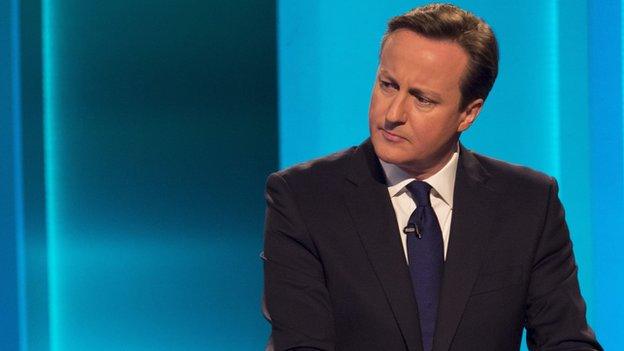
The Conservatives think David Cameron stuck successfully to his core argument
The big risk was the unpredictability of the event, but though Mr Cameron faced some strong attacks from Ed Miliband on the NHS and Nigel Farage on immigration, he held his ground.
Though the polls suggest the UKIP leader performed better on the night, Conservatives dismiss his significance and point to the success of the SNP's Nicola Sturgeon as a further problem for Mr Miliband.
The polls also suggest that it was the leaders of the smaller parties who did best on the night.
But Conservatives believe that in the coming weeks, voters will focus on who will be their next prime minister, so the party's attacks will be targeted at their real rival in this campaign - Mr Miliband.

BBC Lib Dem Campaign Correspondent Arif Ansari
The first debate over and there's no sign of Cleggmania breaking out.
A small crowd did turn up to see Nick Clegg unveil his latest poster near Hyde in Greater Manchester on Friday, but they were Labour activists.
That's probably no reflection on his performance in the debate.
The Lib Dems are pleased with how their leader did, attacking his opponents while appearing reasonable.
Crucially, Mr Clegg avoided making any mistakes and didn't appear to take much flak from the other leaders either.
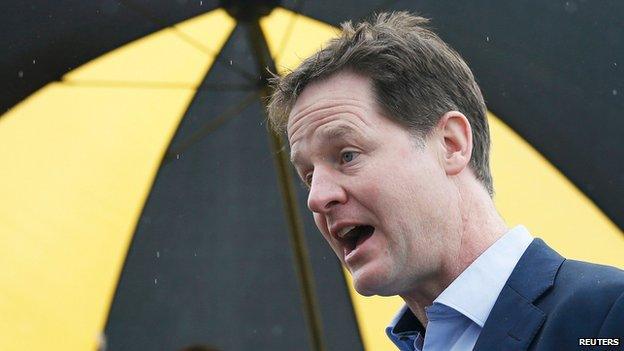
The Lib Dems think their leader appeared reasonable
The trouble is that after five years in coalition with the Tories, he's carrying a lot of baggage.
No matter how well he did, it was never likely to lead to a boost in the polls and it hasn't.
But the ComRes poll taken immediately after the debate suggested that very few people felt he was the worst performer.
The deputy prime minister told me he has not watched the debate back but if he's starting to neutralise the hostility towards him, that's progress.

BBC UKIP Campaign Correspondent Alex Forsyth
This wasn't the first test of Nigel Farage's televised debating skills. Last year he went head-to-head with Nick Clegg - and many said he came out on top.
So this time, expectations of the UKIP leader were high.
UKIP wants to be seen as a big player in these elections and in any negotiations that may follow polling day over who forms the next government.
No doubt they'll make the most of the fact that Mr Farage was grouped with David Cameron, Ed Miliband and Nicola Sturgeon near the top of the snap opinion polls.
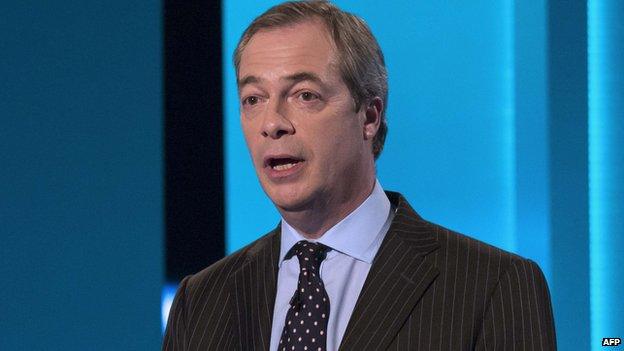
Nigel Farage again positioned UKIP as the anti-establishment party
He took every opportunity to bring the debate back to his key messages on the European Union and immigration.
Mr Farage again positioned UKIP as the anti-establishment party, using his final pitch to tell the audience the other party leaders were "all the same".
He landed a few blows on the traditional Westminster parties.
But he had an uncomfortable moment, when Plaid Cymru leader Leanne Wood got the first round of audience applause for telling Mr Farage he should be ashamed of himself for his views on migrants with HIV.
Today is Mr Farage's birthday and he's expected to stay out of the spotlight. No doubt there'll be some celebrating.
- Published2 April 2015
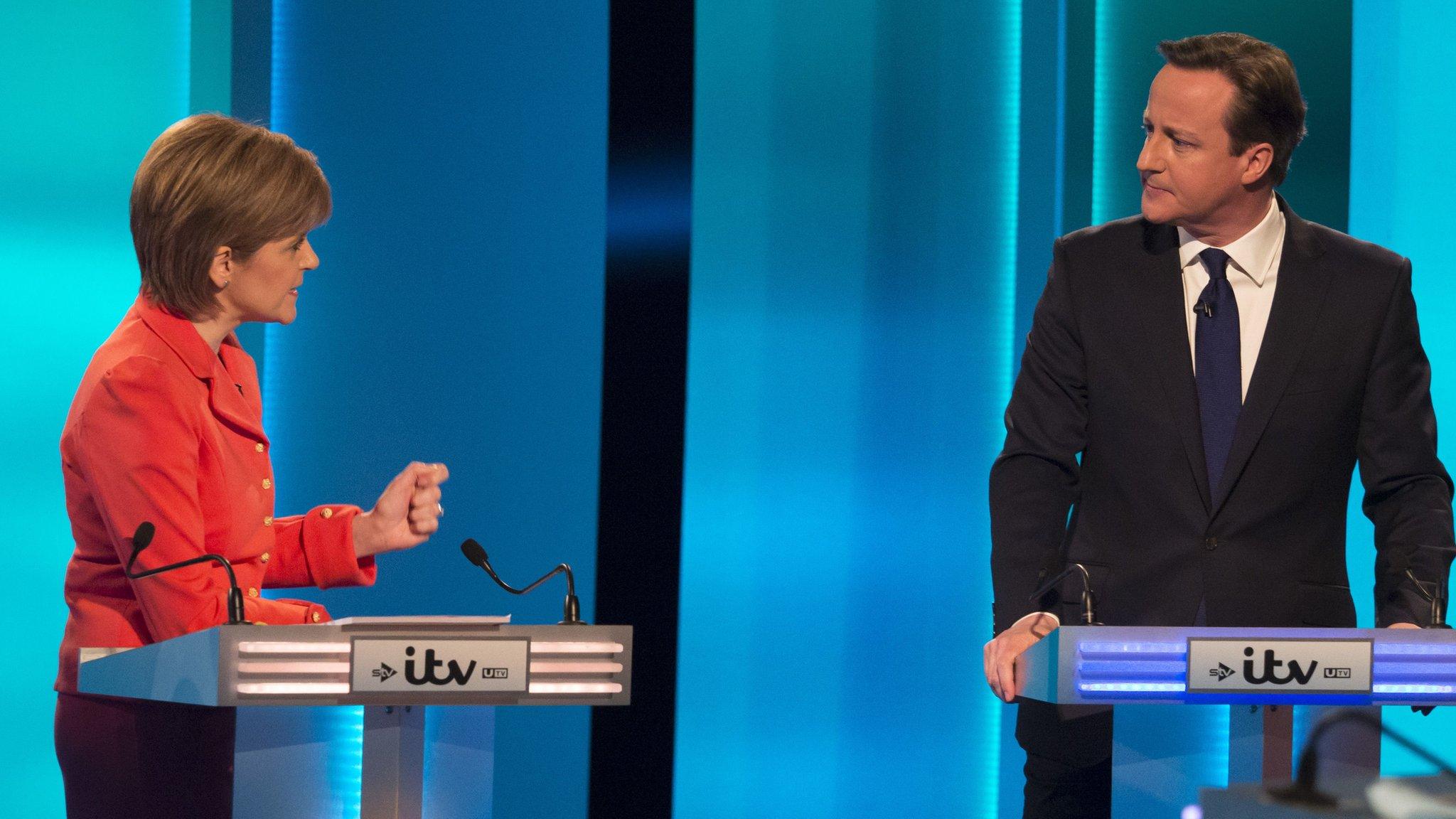
- Published2 April 2015
- Published3 April 2015
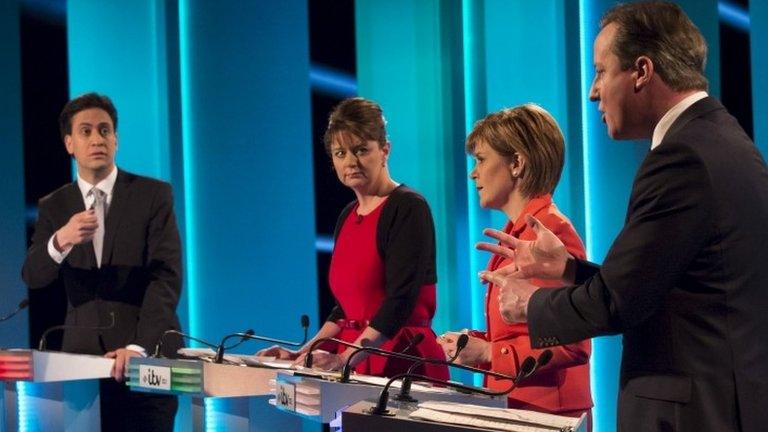
- Published2 April 2015
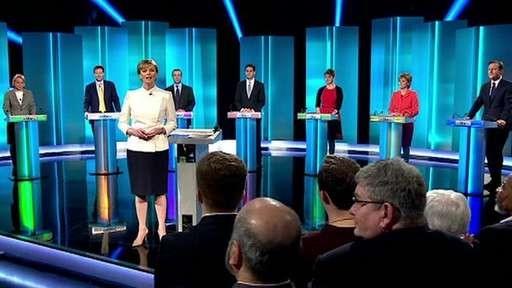
- Published3 April 2015
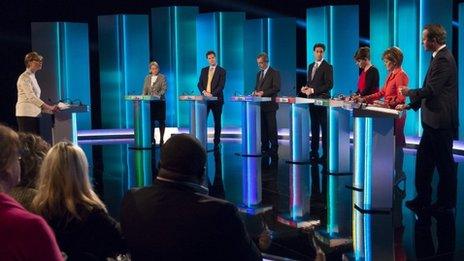
- Published3 April 2015
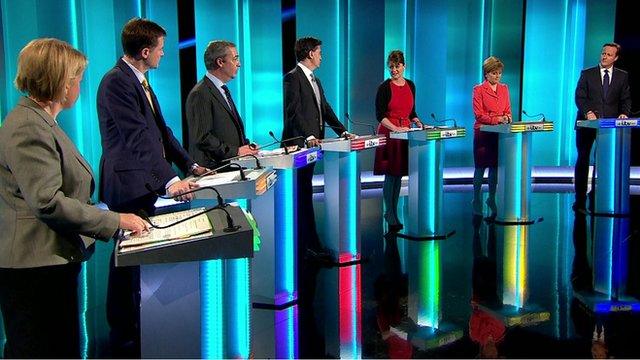
- Published2 April 2015
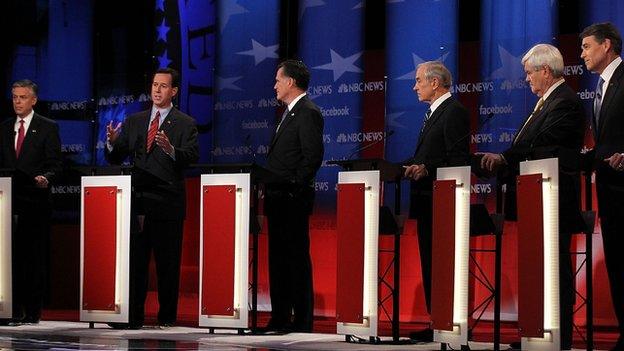
- Published2 April 2015
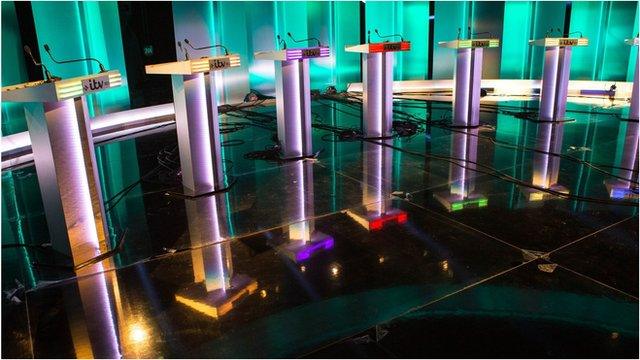
- Published2 April 2015
